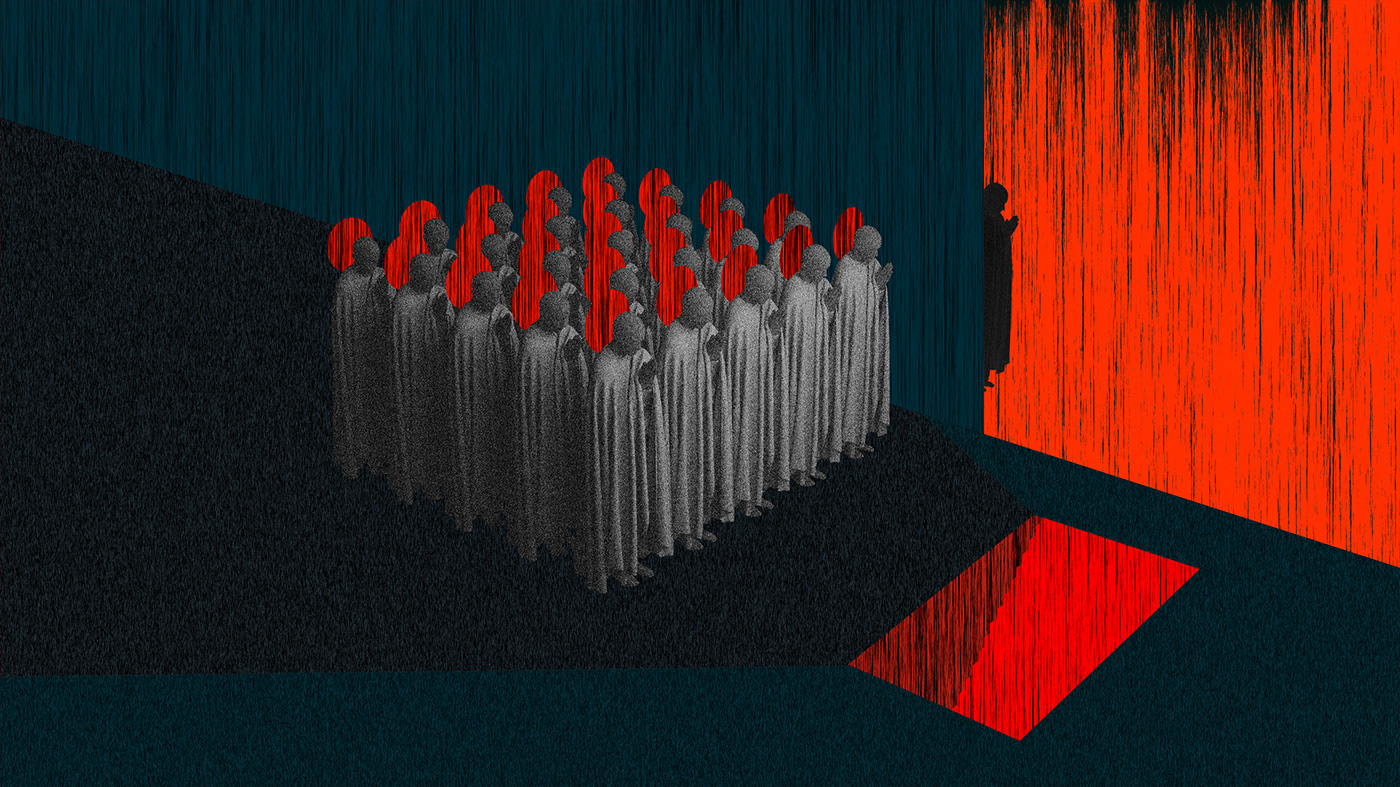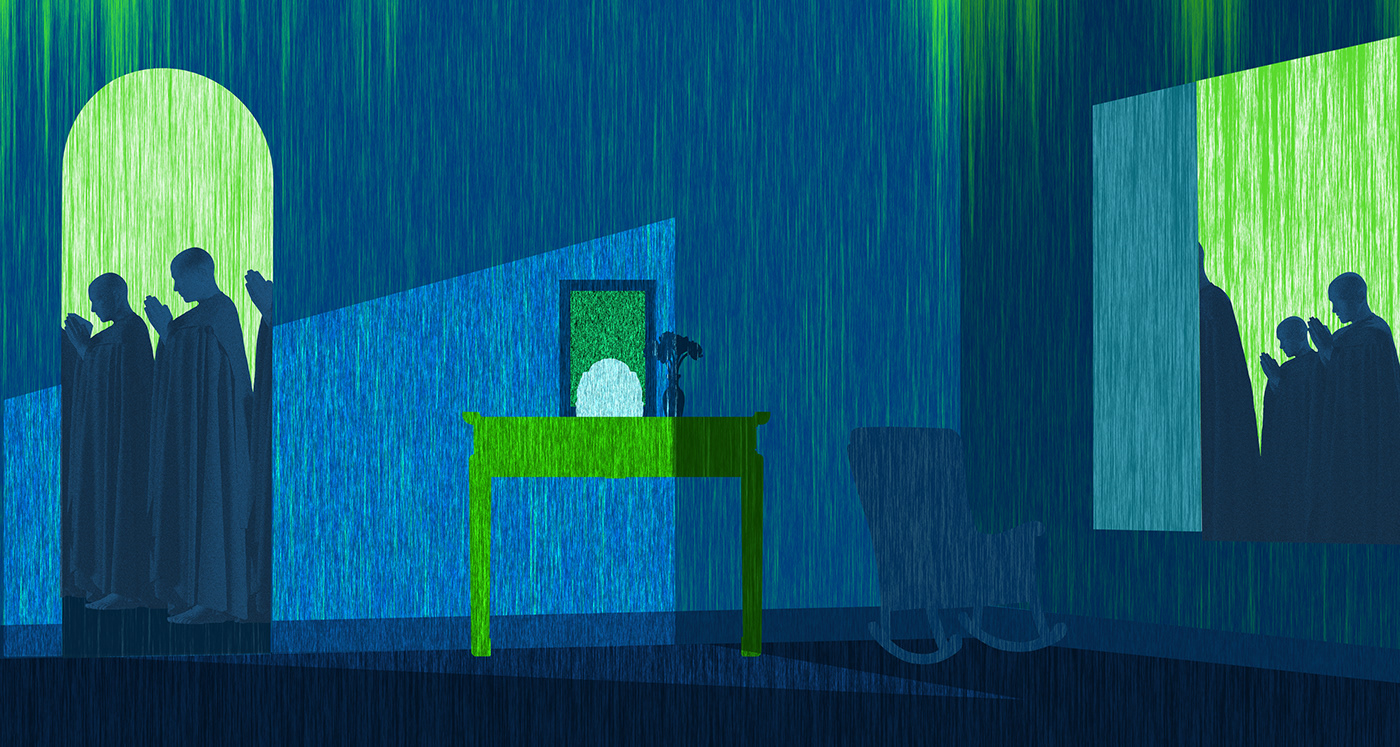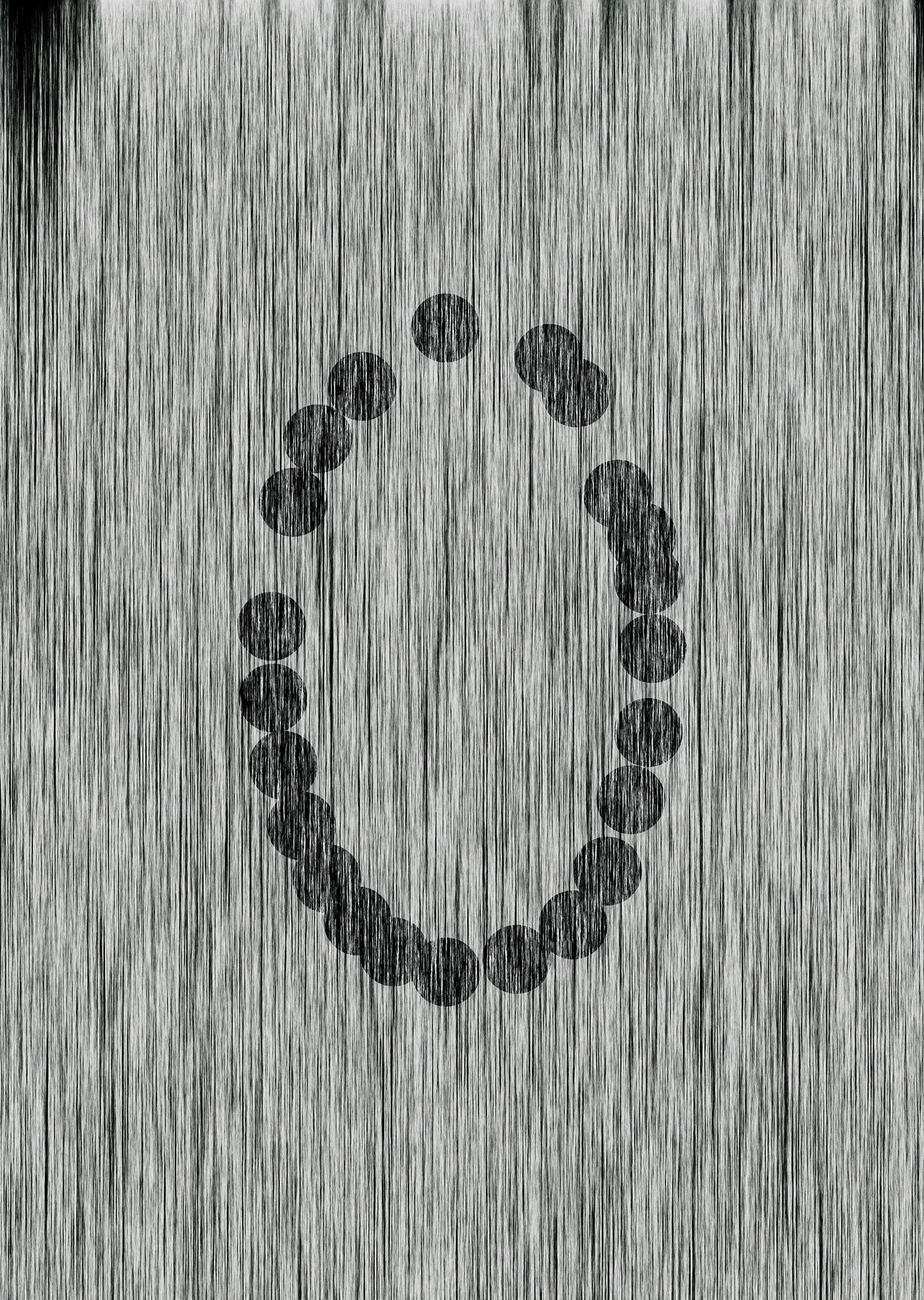The invisible psychological boundary after life
The psychological boundaries of life and death refer to the ways in which individuals perceive, experience, and cope with the idea of mortality. For many people, the concept of death can be anxiety-provoking and unsettling, leading to a range of psychological and emotional responses. These responses may include fear, denial, anger, sadness, and acceptance. Additionally, cultural, religious, and spiritual beliefs can greatly influence an individual's perceptions of life and death. While some may view death as an end to life, others may see it as a continuation of existence in some form or another. Ultimately, how individuals navigate and make sense of these psychological boundaries can impact their overall well-being and quality of life.

THE HELL
_____
The question of whether there is a hell after life is a matter of religious and philosophical debate. In many religious traditions, such as Christianity and Islam, hell is viewed as a place of punishment for those who have committed sins during their lifetime. It is often described as a place of eternal suffering and separation from God. However, other religious traditions, such as Buddhism and Hinduism, do not have a concept of hell in the traditional sense. Instead, they view the afterlife as a continuation of the cycle of rebirth and karma, with individuals being reborn into different states of existence based on their past actions. From a philosophical perspective, the existence of hell is often questioned based on the problem of evil and the idea that a just and loving deity would not create a place of eternal suffering. Ultimately, whether or not there is a hell after life remains a matter of personal belief and interpretation of religious teachings.

AN INFINITE SPACE
_____
When faced with the inevitability of death, many individuals may experience a sense of an infinite space or vastness. This feeling can arise from the realization that death is a universal and timeless concept that transcends individual existence. In this way, death can evoke a sense of insignificance and humility in the face of the grandeur and magnitude of the universe. However, this infinite space can also be a source of comfort and connection, as it reminds us that we are all part of a larger, interconnected web of life. Some may find solace in the idea that their energy or spirit will continue on after death, or that they will be reunited with loved ones who have passed on. Ultimately, the experience of an infinite space when confronted with death can be both overwhelming and transformative, prompting individuals to reflect on their lives and find meaning and purpose in the face of mortality.

THE BLACK HOLE
_____
Mental illness can have a profound and debilitating impact on an individual's life. One of the worst aspects of mental illness is the way it can make even simple everyday tasks feel overwhelming and impossible. The constant feeling of being unable to cope can lead to a sense of hopelessness and despair, which can in turn exacerbate the symptoms of the illness. Mental illness can also make it difficult for individuals to maintain relationships with friends and family, and to participate fully in society. In some cases, mental illness can lead to self-harm, suicidal thoughts, or even suicide attempts. The stigma surrounding mental illness can further compound these difficulties, making it difficult for individuals to seek help and support when they need it most.

AFTER PHYSICAL SHOCKET
_____
Post-psychopathic depression is a condition that can occur in individuals who have been in a relationship with a psychopath or sociopath. It is characterized by a deep and prolonged sense of sadness, hopelessness, and despair, often stemming from the emotional and psychological abuse suffered during the relationship. People who experience this type of depression may feel a sense of numbness, as well as difficulty with trust and forming new relationships. They may also experience symptoms such as insomnia, loss of appetite, and difficulty concentrating. Treatment for post-psychopathic depression often involves therapy and counseling to help individuals work through the trauma and rebuild their sense of self-worth and trust in others. It is important for individuals experiencing this type of depression to seek help and support from mental health professionals, as it can be a challenging and complex condition to manage on their own.

THE HEAVEN
_____
The concept of heaven, as a place of eternal peace and bliss after death, has been a topic of speculation and debate throughout history. While some religious traditions explicitly describe a heaven as a final destination for the righteous, others suggest different versions of the afterlife or no afterlife at all. The question of whether there is a heaven after life remains a deeply personal and philosophical inquiry, as it ultimately depends on one's individual beliefs and faith. Some people may find comfort in the idea of a heaven, believing that it provides a sense of purpose and ultimate reward for a life well-lived. Others may view the concept of heaven as a human construct or myth, preferring to focus on living in the present rather than speculating about an unknown future. Despite the many different perspectives on the existence of heaven, it remains a powerful symbol of hope and aspiration for many individuals around the world.

THE MEDITATION AND AFTER LIFE
_____
The practice of meditation has been shown to have numerous physical and mental health benefits, including helping individuals navigate the invisible fire between life and death. Through regular meditation, individuals can learn to cultivate a greater sense of awareness and acceptance of their mortality, allowing them to approach death with more equanimity and peace. By quieting the mind and focusing on the present moment, individuals can begin to understand the impermanence of life and the interconnectedness of all things. Additionally, meditation can help individuals develop a greater sense of compassion and connection with others.

THE FEAR
_____
_____
The concept of fearing or accepting death is a complex one that can vary greatly depending on an individual's beliefs, experiences, and values. Some people may feel a sense of dread or anxiety when contemplating their own mortality, while others may view death as a natural part of the cycle of life. There are also cultural and societal factors that can influence an individual's attitudes towards death. For some, death is seen as a taboo subject that is best avoided, while others may view it as a necessary and even beautiful part of life. Ultimately, whether a person fears or accepts death can have a significant impact on their mental and emotional well-being. Those who are able to confront and come to terms with the inevitability of death may experience greater peace and acceptance, while those who are unable to do so may suffer from anxiety and existential distress.


